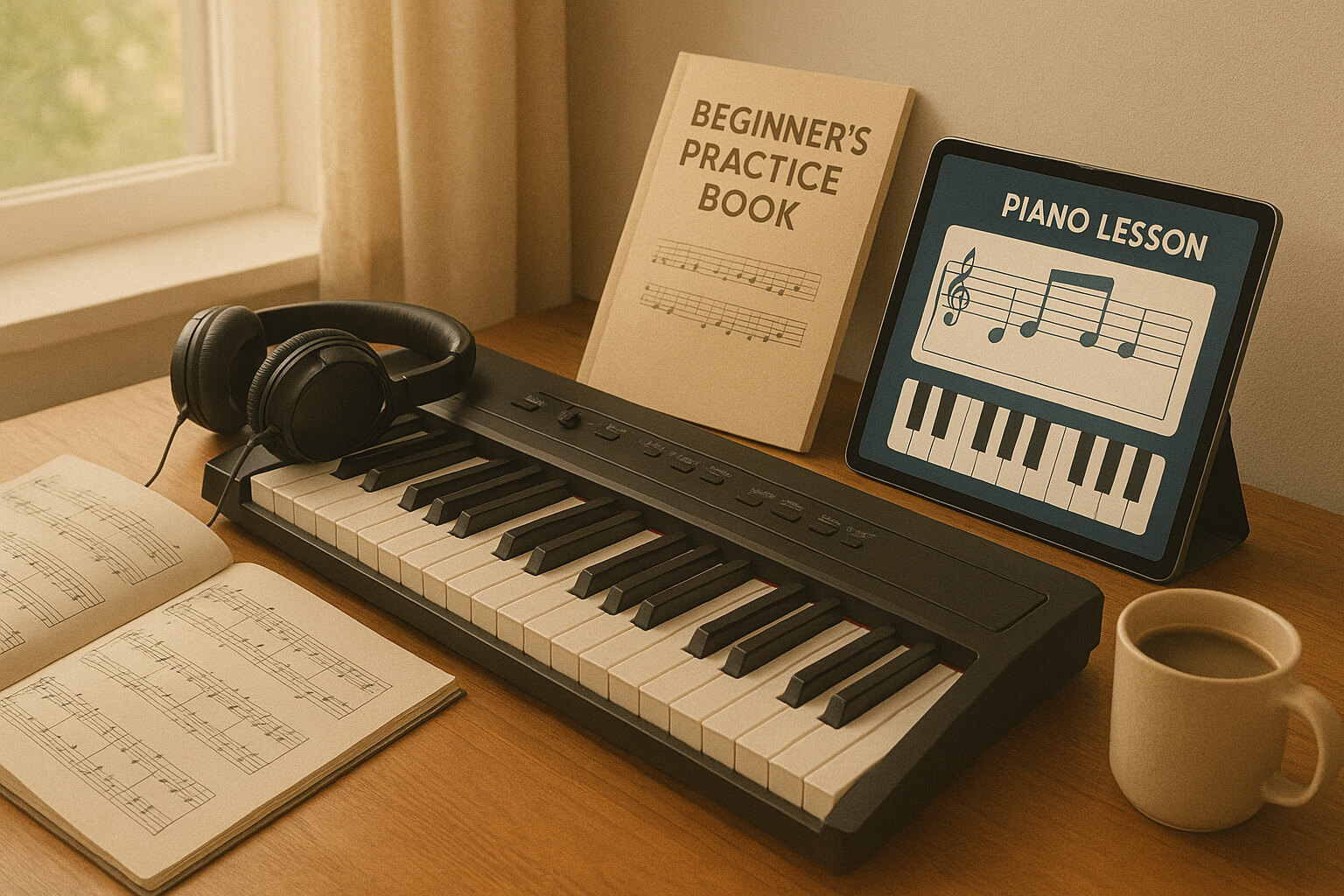July 30, 2025

Gone are the days when learning piano meant expensive tutors or rigid class schedules. In 2025, apps, YouTube, and downloadable resources have revolutionized piano learning. Now, with just a keyboard and Wi-Fi, anyone can start learning piano at home—structured, effective, and entirely for free.
Whether you're a total novice or returning after years, here’s a step-by-step modern learning path used by thousands of learners worldwide.
Consistency is key to mastering an instrument, and a 7-day piano challenge gives you a ready-made structure. Expect:
By Day 7, you’ll likely play simple songs and chord progressions with confidence. This challenge serves as a perfect on-ramp to self-guided practice.
Free 7-Day Piano Challenge — Start Learning Piano Today
Modern piano apps like Simply Piano, Flowkey, and Piano Academy function as digital tutors, providing:
These apps turn daily practice into an engaging, feedback-driven experience. For best results, pair app sessions with efficient practice strategies to maximize skill retention.
Effective Strategies for Improving Musical Skills
Visual learners thrive with YouTube tutorials. Here are top free channels:
Start with tutorials for songs you love. Then, transition into understanding scales and chord progressions for a deeper grasp of piano structure.
Unlocking the Piano Fretboard – Major and Minor Scales Explained
Understanding Chord Progressions — A Deeper Dive
Reading sheet music unlocks access to thousands of pieces, but many learners find it intimidating. A beginner-friendly music reading guide can break it down into simple concepts:
Even if you prefer playing by ear, learning notation enhances your fluency and ability to learn songs faster.
The Ultimate Guide to Music Reading for Beginners
Being able to “hear” music improves your improvisation, memory, and overall musicianship. Free ear training tools can help you:
Spend 5–10 minutes per day using apps like Tonedear, Musictheory.net, or ear-training modules within Flowkey or Simply Piano.
Ear Training Exercises — How to Hear Chords and Melodies
Music theory doesn’t have to be complex. Start with:
Theory will help you compose, improvise, and even re-arrange music intuitively.
The Benefits of Learning Music Theory
Memorization is easier when approached systematically. Use these tips:
How to Memorize Songs Quickly and Effectively
Structure beats randomness. Here’s a sample weekly blueprint:
This cyclic schedule will help you build muscle memory, theory understanding, and musical intuition simultaneously.
Learning with others accelerates progress:
Building Your Fanbase – Strategies for Indie Musicians
Optimize your practice space:
By making your space inviting and distraction-free, you’ll find it easier to maintain focus and enjoy the process.
In 2025, free online piano learning isn’t just a possibility—it’s powerful, structured, and widely accessible. With a combination of apps, YouTube lessons, sheet music guides, and ear training, you can transform from a beginner into a confident player at your own pace.
The key ingredients?
Your only real investment? Time and focus.
Your reward? The joy of playing songs, creating music, and expressing yourself without limitations.
Stay up to date with the latest tips, expert insights, product reviews, and step-by-step guides to help you grow, create, and succeed—no matter your industry or passion.